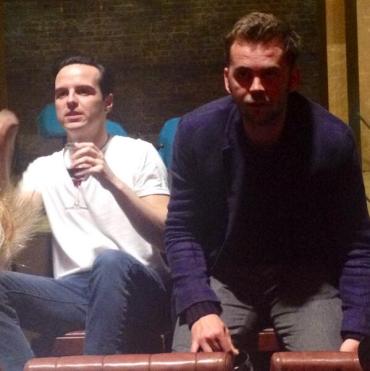Tonight it’s the BBC4 broadcast of The Duchess of Malfi, as it was performed earlier in the year at the Sam Wanamaker playhouse – Shakespeare’s Globe. This is an important occasion, not least because there has been no Jacobean plays on tv since 1993 (more on the subject at John Wyver’s blog, and if you have the least bit of interest on how theatre translates into other media, you have to follow his writing).
I found the production itself bloodless – figuratively, the luminous beauty of the setting didn’t always translate to the fever of the story and text. With one exception: David Dawson as Ferdinand, his soul twitching with forbidden desires while his face remained waxed in explosive immobility.
I first saw David Dawson in Trevor Griffiths’ Comedians at the Lyric Hammersmith in 2009. As Gethin Price, the uncompromising idealist of the group walking the line between madness and genius, David Dawson’s impressive talents were in full display: a feverish performance that combined subtlety and extravagance, threat and charisma in equal measures. I clearly remember him in his big scene, full of drool and snot, both repulsive and attractive. Continue reading





